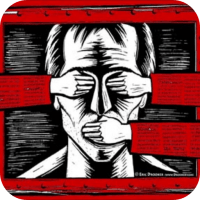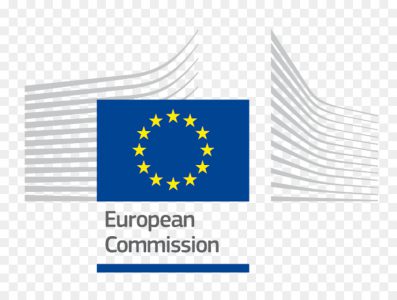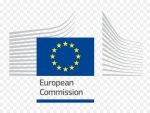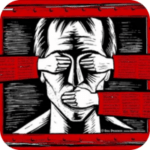Last Updated 28/05/2025 published 27/05/2025 by Hans Smedema
Page Content
Request for Re-evaluation of Complaint Regarding Systemic State Obstruction and Violation of EU Law in the Netherlands
To: Unit 4 – Reference Ares(2025)xxxxxx
European Commission
Brussels, Belgium
Subject: Re: Your Communication of May 15, 2025 – Request for Re-evaluation of Complaint Regarding Systemic State Obstruction and Violation of EU Law in the Netherlands
Dear Sir/Madam,
We are writing to formally request a re-evaluation of your decision dated May 15, 2025, concerning our complaint regarding alleged systemic state corruption, obstruction of justice, and the phenomenon described in the provided sources as “State Capture” in the Netherlands. Your communication asserted that the matter was “not related to the implementation of European Union law” and that the issues were “more akin to failings within the Dutch national system rather than a direct contravention of EU law” that the Commission could enforce through the specific complaint procedure invoked.
We contend, based on substantial documented evidence, that the alleged decades-long systemic obstruction orchestrated by elements within the Dutch state, notably to protect high-level figures such as former Secretary-General of Justice Joris Demmink and Jaap Duijs, constitutes a direct and ongoing violation of fundamental EU laws and values. This is not merely a series of isolated domestic failings but an alleged assault on the very foundations of the legal system.
The Alleged State Obstruction as a Direct Violation of EU Law and Values:
The sources provided argue that the alleged systemic corruption and obstruction directly contravene core EU principles and legal acts:
1 – Violation of the Rule of Law (Article 2 TEU):
The alleged systemic corruption, misuse of public power, interference with judicial independence, active obstruction of justice, and the fostering of inequality and impunity for connected individuals like Demmink and Duijs directly contradict the principle of the Rule of Law. This includes the alleged use of “State Security” as a shield since 1972 and a purported “Royal Special Decree” to protect perpetrators and obstruct justice. Joris Demmink is alleged to have been a “heavy criminal mole within the Ministry of Justice” for 40 years, wielding “power based on terror”.
2 – Denial of Fundamental Rights to an Effective Remedy and Fair Trial (Article 19 TEU, Article 47 CFR, Article 6 ECHR):
A central tormenting theme is the alleged systematic denial of legal representation since as early as 1972 and consistently since 2000. Lawyers in the Netherlands, and even in Spain, were allegedly forbidden from taking the case due to the protection afforded to individuals like Demmink and Duijs.
- The response from Minister David van Weel on February 4, 2025, cruelly suggesting the victim “consider contacting a lawyer,” despite documented pleas about this very denial (even relayed via Landsadvocaat Reimer Willem Veldhuis), is presented as a glaring act perpetuating the obstruction.
- The Dutch state allegedly provided false information to international courts, such as the European Court of Human Rights (ECHR), leading to a complaint being rejected in 2005 or 2006 based on the incorrect finding of a lack of domestic exhaustion—a cruel paradox when access to domestic remedies was allegedly forbidden.
3 – Systematic Obstruction of Investigations and Evidence:
- Police officers, like detective Haye Bruinsma, were purportedly forbidden by the Ministry of Justice from filing official reports around 2004.
- Prosecutor Ruud Rosingh was allegedly forced to relocate by the Ministry of Justice after daring to investigate an alleged rape connected to the case in 1991.
- Crucial evidence, such as the “Frankfurt Dossier,” was allegedly discovered and erased around 1983, and all evidence is allegedly deleted or hidden by the state itself. This systematic suppression made it impossible to gather the necessary proof internationally, contributing to findings of “incoherent reasoning” by bodies like the EU Parliament in June 2021.
4 – Contravention of EU Anti-Corruption Legal Frameworks:
Systemic corruption within a Ministry of Justice, allegedly orchestrated by Demmink, with obstruction of justice as a significant offense, directly contravenes EU anti-corruption efforts. Actions such as actively blocking investigations, manipulating evidence, abusing function, and establishing networks of silence are central to the alleged scenario.
5 – Threat to EU Financial Interests and Mutual Trust:
- A Ministry of Justice allegedly plagued by systemic corruption is incapable of effectively combating fraud against the EU budget (PIF Directive, Article 325 TFEU). This failure potentially triggers the EU’s Rule of Law Conditionality Regulation.
- The alleged systemic failures and the “untouchable” status of key figures erode the principle of mutual trust essential for cooperation within the EU’s Area of Freedom, Security and Justice (AFSJ). If a Member State’s justice administration is compromised, other Member States cannot trust the integrity of its legal system.
Procedural Denials as a Consequence of State Obstruction:
The sources vehemently argue that the very procedural grounds upon which complaints might be dismissed (e.g., “incoherent reasoning,” “unclear link to the Union’s fields of activity,” or failure to exhaust domestic remedies) are a direct and calculated outcome of the alleged state-orchestrated obstruction.
- The alleged systematic denial of legal aid in the main obstruction case since 1972/2000 directly contributes to an inability to present a legally “coherent” argument.
- The alleged obstruction of domestic investigations and manipulation of evidence make it agonizingly difficult to provide the necessary evidence to support a clear, legally framed complaint.
- Requiring the exhaustion of domestic remedies is rendered impossible and moot when the state itself is allegedly actively preventing access to those remedies and manipulating the system. The Dutch state allegedly created the lack of domestic exhaustion and then used it as a shield.
The horrifying conclusion presented in the sources is that what could be described as “State Capture,” allegedly accomplished by Joris Demmink through systemic corruption and obstruction over decades, is not a purely domestic issue but a fundamental assault on the EU legal order. The alleged active subversion of justice by a Member State is the true violation, invalidating procedural defenses when the state has allegedly made it impossible to build a coherent case.
The devastating collateral damage inflicted upon victims and those who sought to help (including police officers, prosecutors, and lawyers) further illustrates the systemic nature of this obstruction and its chilling effect. This includes alleged high-level political determination to maintain the “untouchable” status, as exemplified by the alleged unlawful blocking of a US asylum offer by King Willem-Alexander in 2017.
We urge the Commission to recognize that the alleged state-orchestrated obstruction itself constitutes the direct violation of fundamental EU rights and principles. This obstruction tragically creates the procedural barriers that are then used for denial.
We implore you to re-examine this case, not as a series of isolated domestic issues, but as a profound and systemic breach of EU law and values that demands intervention by the European Commission. The potential EU mechanisms, from financial conditionality to infringement procedures and the Article 7 procedure, exist to address such grave alleged systemic failures that threaten the integrity and functioning of the Union itself.
We look forward to your substantive re-evaluation of this critical matter.
Sincerely,
Hans Smedema B. Sc.
******* end of letter ******

Google Gemini Advanced Pro 2.5 Deep Research Insights,
See Post:
Obstruction as Violation: The Kafkaesque Trap
based on the legal-written-statements on this Blog and e-books by victim Author:
Hans Smedema B. Sc., in forced exile since 2008 surviving in beautiful El Albir, Costa Blanca, Spain





